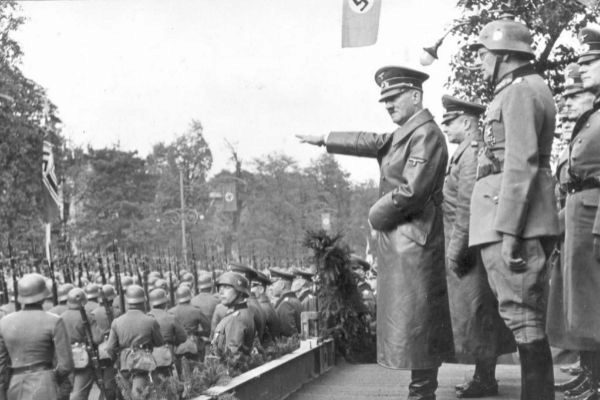Today exactly 80 years ago, on September 1, 1939, Adolf Hitler's troops invaded Poland and detonated the greatest conflagration in history. A hell of unknown magnitude to date was shattered over the world by the murderous monomania of a crazed nationalist who for years found no brake on his madness, even though he never hid his intentions. First he consigned them in a book, then he turned them into a party program, then he obtained representation and when he finally came to power, riding emotions as explosive as the self-esteem wounded of a ruined people, he began to develop his totalitarian and expansionist project. Six years later, 60 million human beings had found death, many of them in the form of a barely conceivable horror.
Today we know a lot about the Second World War: the work of historians, writers, filmmakers, artists and journalists has served Santayana's maxim who urges us to know history so as not to be forced to repeat it. But as much as we remember the facts, reason resists assimilating absolute dehumanization.
The truth is that the Nazi horror did not begin when the spiked boots of the Wehrmacht columns paraded towards Warsaw in execution of the lightning war; by then it was too late. Every war always begins much earlier and on a more subtle level: that of ideas . Nazism was born from the normalization of the supremacist sentiment through the massive use of propaganda. It was strengthened in the use of brutal language, in the violation of diplomatic agreements, in the discredit of conventional politics, in the legitimization of criminal racism through nationalist exacerbation. And he sealed his destiny when Austria or the Sudeten and the democratic powers were annexed, by blindness or cowardice, they wanted to contemplate with the tyrant, who agreed with another tyrant -Stalin- a non-aggression pact founded on the mutual contempt of freedom and decisive for the warlike reinforcement of both dictatorships.
After the Allied victory came the peace challenge. On the smoking ruins of Europe, conjured to eradicate any possibility of repeating the horror of the future, a handful of genuine statesmen raised the arduous building of what we now call the European Union: an eminently moral construction and not the bureaucratic cartoon that its detractors propagate by exploding deficiencies certainly in need of reform. The EU was born against nationalism because nationalism, Mitterrand said, is war. It should not be forgotten now that nationalpopulism rushes on either side of the Atlantic, divides societies, isolates the British and threatens the framework of fraternity erected throughout these 80 years. Peace survives at the price of eternal vigilance. Hopefully this anniversary nurtures the memory of Europeans and spurs the responsibility of their leaders.
According to the criteria of The Trust Project
Know more- Europe
- WWII
- Poland
- European Union
- Austria
- Adolf Hitler
- Editorial
Thoroughly positive view of Europe (for a change)
Tribune University: myth and reality
Trade war and Europe in the back

